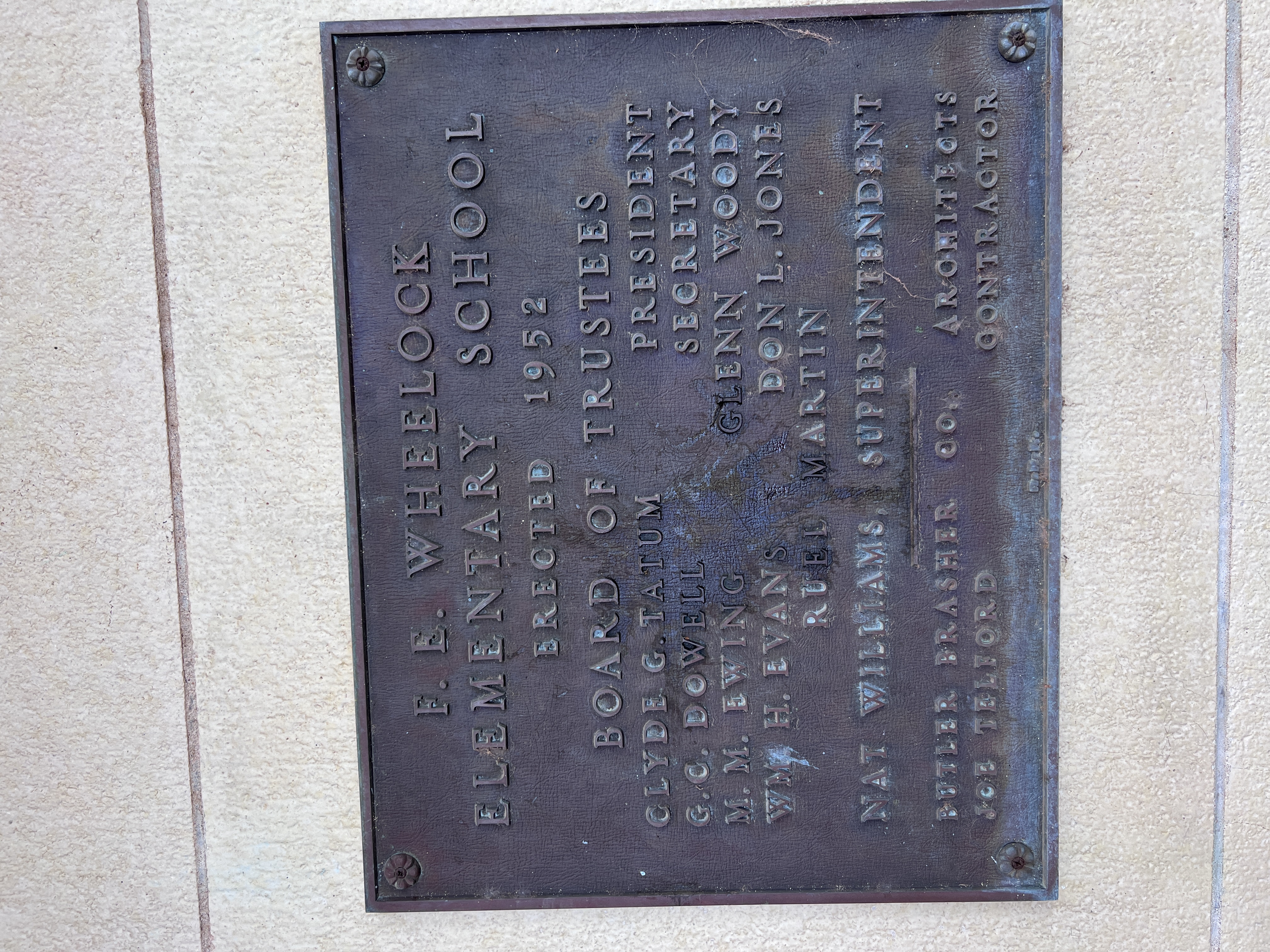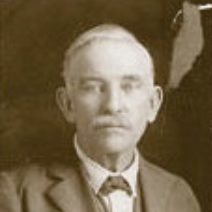Wheelock Elementary School was named for Frank Emerson Wheelock, founder of the City of Lubbock, and one of the most influential early-day citizens of the South Plains of Texas. Mr. Wheelock was born in Holland (Erie County), New York, on April 11, 1863. The Wheelock family had come to America from England during the historic "Great Migration" of the early seventeenth century to escape persecution by the Stuart Kings. The family immediately assumed a leading role in the affairs of the colonial New England. Frank Wheelock's parents, Dr. William Efner (1842-1902) and Louisa Diane (Farrington, 18??-1869) Wheelock made their home in New York, where Dr. Wheelock was a practicing physician.
After the death of his wife, while Frank Wheelock was yet a child, Dr. Wheelock moved to Madison, Wisconsin, taking young Frank and his brother, William Ava Wheelock , with him. According to family records, the father went on west to buy a farm in North Dakota, where the boys spent summers with him. During the school terms, Franks stayed in Madison with his Uncle, Jerome Wheelock, while William went to Moline, Illinois to stay with another Uncle.
In 1876, the Jerome Wheelocks moved to Moline taking Frank with them, and in 1878 the family moved to Minneapolis, Minnesota, where Frank finished school. His first employment was with S.J. Palmer, a fruit commission merchant of Minneapolis, but in 1887 he accepted a new position as a farm manager on the IOA ranch, an extensive livestock operation in West Texas. The Western Land and Live Stock Company, which owned the IOA ranch, was controlled by Stillman W. Wheelock, a great uncle of Frank Wheelock, who was a prominent businessman and civic leader of Moline. Stillman Wheelock was president of the well-known Moline Plow Company, the Moline Paper Company, and a number of other Illinois firms.
Frank Wheelock moved to Texas at the age of twenty-four, and from that time forward began to play an important role in the development of the South Plains region. Although the ranch was dissolved in 1892 following the death of his uncle, Frank Wheelock remained in Texas. He had become interested in ventures of his own. His interest in building a town on the plains was discussed by Rollie Burns, an IOA foreman:
"In the spring of 1890, a real estate man by the name of W.E. Rayner came to Lubbock County and began to talk about laying off a town site and establishing a county seat. He wanted the good will of some of the local citizens, and offered Frank (F.E.) Wheelock and myself ten lots each if we would support him in his effort to get the county seat at Monterey. Wheelock and I had been watching his activity, and decided that the matter of starting a town was not so involved. We told him our support would cost a great deal more than ten lots apiece. He got mulish and said that was all he would give. Wheelock and I decided to start a town of our own."
This they did, with financial support from John T. Lofton and James Harrison of Fort Worth, and with Frank Wheelock as manager for the venture. Wheelock built the Nicolett Hotel which was to become a Lubbock landmark, a store building, and put in a well and windmill. This activity prompted Rayner, the rival town promoter, to suggest a compromise, which was effected December 19, 1890, by an agreement between F.E. Wheelock, J.T. Lofton, James Harrison, W.E. Rayner, and H. Rayner. A new section of land, where the town of Lubbock now stands, was selected as the site for a joint town venture, and Wheelock was appointed to manage the affairs. The success of his untiring efforts are witnessed today in the "Hub City" of the South Plains.
From that time on, Frank Wheelock's chief interest and occupation was the zealous promotion of the civic affairs of his beloved city. He served a Lubbock's first mayor and was on the first Lubbock County Commission, introduced the first cotton gin in Lubbock County, introduced the first self-binding harvest machine in the county, brought the first Sudan seed to Lubbock, and was one of the earliest breeders of registered Hereford cattle in the area. He also was Lubbock's first postmaster, and promoted the first motor bus line operating out of Lubbock. He was further interested in the development of the Lubbock Cemetery and the promotion of railroads and good highways. His name is perpetuated in Lubbock in the Wheelock Addition of the City and in the F.E. Wheelock School.
He continued private business ventures as a rancher and cattle-man, as a partner with Irving L. hunt in the mercantile firm of Hunt and Wheelock, and as a financier.


